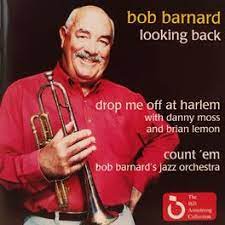
Daily Dose Of Jazz…
Robert Graeme Barnard was born on November 24, 1933 in Melbourne, Australia and his parents had formed a dance band in the 1920s, his mother was the bandleader and pianist, his father on saxophone, drums and banjo. His older brother Len joined them on drums at age 11. He took trumpet lessons from age 11 and played clarinet in a local brass band before he joined the family band at 14 in 1947.
When his brother Len formed his own group, Len’s South City Stompers the next year he joined on trumpet and they made their first recording in 1949 on his 16th birthday. The following year they began a weekly radio broadcast as Len Barnard’s Dixieland Jazz Band. He played with the group until 1955 after being cheated of their takings and stranded in Tumut, Australia. Relocating to Sydney he performed with Ray Price Trio before returning to Melbourne.
In 1958 Barnard joined the Graeme Bell band for an Australian tour. He worked for Brashs from 1958 to 1962, while performing after business hours. He went back to Sydney in 1962 and as a member of Graeme Bell and His All-Stars appeared on Trad Pad, a TV special program.
He was nominated in 1996 at the ARIA Music Awards of 1996 for Best Jazz Album for Live at the Sydney Opera House, which was recorded with the Australian Jazz Allstars.
Trumpeter and cornetist Bob Barnard, who was made a Member of the Order of Australia (AM) for service to music, particularly jazz, transitioned on May 7, 2022.
More Posts: bandleader,cornet,history,instrumental,jazz,music,trumpet
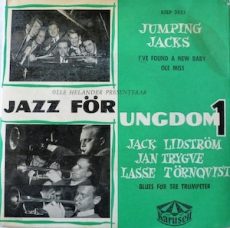
Daily Dose Of Jazz…
Lasse Törnqvist was born Lars Törnqvist on November 18, 1935 in Bromma, outside Stockholm, Sweden. Between 1952 and 1957 he played traditional jazz with the Midnight Stompers. He took a music hiatus but picked up playing again in 1973 in more swing and mainstream influenced sextest and septets, like the Olle Orrjes Jazz Band and Lasse Törnqvist’s Blue Stars.
He experimented with small bands in order to achieve a more acoustic sound. During the 1980s he often played with a cornet and piano duo. In 1992 he put a trio together with guitar and bass which became the Sweet Jazz Trio.
Cornetist Lasse Törnqvist, at 98 years old, no longer plays.More Posts: bandleader,cornet,history,instrumental,jazz,music
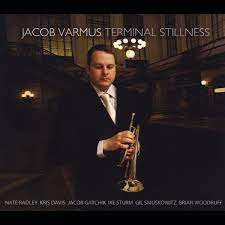
Daily Dose Of Jazz…
Jacob Varmus was born on October 6, 1973 in San Francisco, California. He first heard the trumpet’s call when he was two years old and ten years later had a trumpet of his own. He began winning top marks at all the California Music Educators’ Association festivals for his work as soloist and chamber musician.
Evolving parallel to his love of music was a talent for using language artistically thru poetry, critical essays, and autobiographical stories. In high school he won awards for poetry and sports journalism as well as music. His first year of college at the University of Iowa, Jacob studied poetry closely with MacArthur grant recipient Jorie Graham and classical trumpet virtuoso David Greenhoe.
An initiation to the music of John Coltrane sent Varmus to focus on jazz. In 1994 he moved to New York City to finish his BFA at the New School Jazz program. There he received timeless lessons from a long list of artists including Arnie Lawrence and Billy Harper. Here he became known to his peers and elders as a composer of harmonically intricate yet compellingly simple and striking tunes.
By his senior year he was being commissioned by the Jazz Composers’ Collective to write a suite combining jazz quintet with string quartet. It featured Ted Nash and Frank Kimbrough. He went on to enroll in composer workshops, receiving a further commission for jazz quartet.
As an educator he is on the faculty of the New York Jazz Academy. Trumpeter and composer Jacob Varmus continues to pursue his highly melodic yet rigorous music.
More Posts: bandleader,cornet,history,instrumental,jazz,music,trumpet
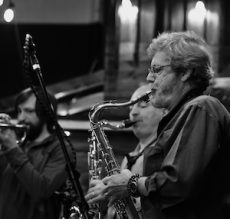
THE JAZZ SYMBIOSIS QUINTET
More Posts: adventure,bass,club,cornet,drums,flugelhorn,flute,genius,jazz,music,piano,preserving,saxophone,travel,trombone,trumpet
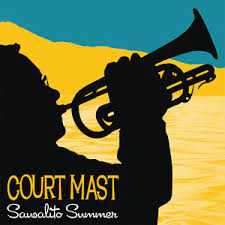
Daily Dose Of Jazz…
Court Mast was born Corky Miller on August 24, 1951 in Sunnyvale, California, where he took up the accordion and then trumpet in grade school. He went to Fremont High School, graduating in 1969. He traveled to Europe on tour with 120 high school and college musicians. Trumpet great Raphael Mendez was on board as guest artist, and Corky took six weeks of private lessons from the master. Returning to the Bay Area, he began performing in big bands around the South Bay and Peninsula and performed with the earliest version of the band that went on to fame as Tower of Power.
While taking performance and composition courses at De Anza College, Corky stayed active in a wide variety of bands, playing rock, jazz, Latin and Mexican music that kept this young working trumpeter onstage. By 1977 he moved to San Francisco, California where he led quartet and quintet jazz groups active on the North Beach music scene and in funky venues like the Hotel Utah.
Disillusioned with the direction that popular music, and jazz in particular, was moving in, in 1983 Miller stepped away from the music world. He became a surfer, changed his name to Court Mast, got into photography and became one of San Francisco’s leading commercial photographers. Then in the first decade of the new century his love of music returned and in 2008 he recorded his debut album Sausalito Summer
Composer and cornetist Court Mast, whose influences have been Henry Mancini, Chuck Mangione, Maurice Ravel, Duke Ellington, the Beatles, Steely Dan, Clifford Brown and Thad Jones, continues to compose and perform as well as maintain his photography.
More Posts: bandleader,cornet,history,instrumental,jazz,music



